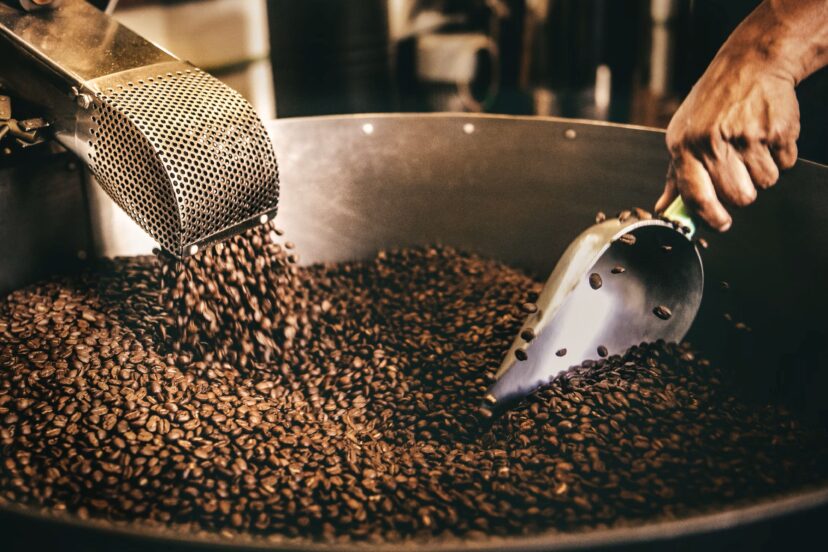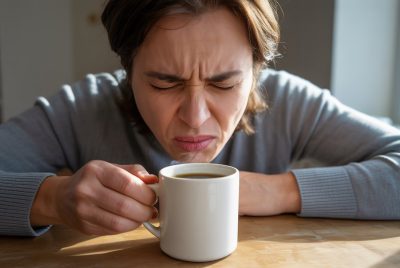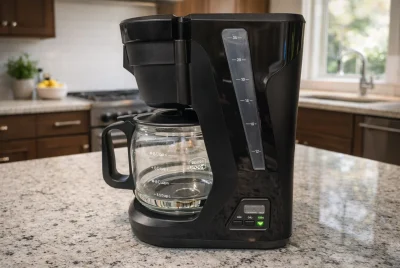Is Decaf Coffee a Diuretic?
*We may earn a commission for purchases made using our links. Please see our disclosure to learn more.
As a coffee enthusiast, I’ve always had a love-hate relationship with coffee’s potential side effects. On one hand, the rich aroma and robust flavor of coffee are irresistible. On the other hand, concerns about caffeine-induced jitters and the dreaded coffee-induced bathroom dash often loom in the background. But what about decaf coffee? Does it spare us from the diuretic effects of caffeine while allowing us to savor that familiar coffee taste? Let’s explore the truth behind this burning question “Is Decaf Coffee a Diuretic? and find out if your favorite decaffeinated brew is indeed a diuretic.
Understanding Diuretics: The Basics
Before we dive into the world of decaf coffee, let’s clarify what diuretics are and how they work. Diuretics are substances that increase the production of urine, promoting fluid loss from the body. They’re often used medically to manage conditions like hypertension and edema. Caffeine is a well-known diuretic, found abundantly in regular coffee. It stimulates the kidneys to produce more urine, which can lead to increased trips to the restroom.
What is Decaf Coffee?
Decaf coffee, short for decaffeinated coffee, is a type of coffee that has had most of its caffeine content removed. It’s the go-to choice for those who love the taste of coffee but want to limit their caffeine intake. So, how is this magic trick of caffeine removal performed?
Decaffeination processes can vary, but they generally involve soaking green coffee beans in water or a solvent to extract the caffeine. The beans are then dried and roasted just like regular coffee beans. Despite its lower caffeine content, decaf coffee retains the beloved coffee flavor.
Decaf Coffee Components
To understand whether decaf coffee is harmful, it’s essential to know what you’re drinking. Decaf coffee contains many of the same components as regular coffee, including antioxidants, minerals, and beneficial compounds. However, the key difference lies in the reduced caffeine content, typically 97% less than regular coffee.
There are several methods for removing caffeine from coffee beans, such as the Swiss Water Process and the use of chemical solvents. The choice of method can affect the final flavor and aroma of the decaf coffee.
Benefits of Decaf Coffee
Decaffeinated coffee, often simply referred to as decaf, offers a range of benefits that make it an appealing choice for many coffee lovers. While it may not provide the same caffeine-induced jolt as regular coffee, it brings its own set of advantages to the table.
Reduced Caffeine-Related Issues
One of the most significant benefits of decaf coffee is its caffeine content, or rather, the lack thereof. For individuals who are sensitive to caffeine or have medical conditions that contraindicate its consumption, such as heart arrhythmias or anxiety disorders, decaf coffee provides a way to enjoy the taste and warmth of coffee without the associated jitters, restlessness, or increased heart rate.
By eliminating caffeine from the equation, decaf coffee allows people to sidestep common caffeine-related issues, including insomnia, digestive discomfort, and increased blood pressure. This makes it a suitable choice for those who want to savor the essence of coffee without the stimulating effects.
Antioxidant Properties
Coffee, whether regular or decaf, contains a wealth of antioxidants, which are beneficial compounds that help combat oxidative stress and inflammation in the body. Antioxidants play a vital role in reducing the risk of chronic diseases, such as heart disease, cancer, and diabetes.
Studies have shown that decaf coffee retains a substantial portion of these antioxidants, including chlorogenic acids, which are known for their health-promoting properties. While the exact antioxidant levels can vary based on factors like coffee bean type and processing methods, decaf coffee can still contribute to your daily antioxidant intake.
Suitable for Evening Enjoyment
One distinct advantage of decaf coffee is its compatibility with evening enjoyment. Regular coffee, with its caffeine content, can disrupt sleep patterns if consumed too close to bedtime. Decaf coffee, on the other hand, allows you to indulge in the soothing ritual of coffee-drinking without the worry of sleep disturbances.
This makes it an ideal choice for those who relish the idea of a warm cup of coffee as a nighttime companion or for winding down after dinner. Whether it’s a cozy chat with friends or a quiet moment with a good book, decaf coffee can be your beverage of choice when you want to relax and unwind without caffeine-induced alertness.
Hydration and Wellness
Staying hydrated is a fundamental aspect of maintaining overall health, and decaf coffee can be a part of your hydration routine. While water remains the primary source of hydration, decaf coffee can contribute to your daily fluid intake.
Furthermore, for individuals who enjoy the taste of coffee but wish to moderate their caffeine intake, decaf offers a satisfying alternative. It can be a valuable tool in managing caffeine consumption while still enjoying the comforting aspects of coffee culture.
Balanced Diet and Lifestyle
In the quest for a balanced diet and lifestyle, decaf coffee can be a valuable ally. It fits into a well-rounded eating pattern and can be incorporated into various dietary preferences, including plant-based, vegetarian, and vegan diets.
Decaf coffee can also be a helpful choice for individuals with specific dietary requirements, such as those following low-caffeine or caffeine-free diets due to medical recommendations or personal preferences. It provides an avenue for socializing and enjoying coffee without straying from dietary guidelines.
Suitable for Health-Conscious Individuals
For health-conscious individuals who are mindful of their caffeine intake or are looking to reduce it, decaf coffee can be an excellent option. It allows you to enjoy coffee’s unique flavors and aromas without the potential side effects of caffeine.
Moreover, decaf coffee has been associated with a lower risk of certain health conditions, such as type 2 diabetes and neurodegenerative diseases like Parkinson’s. While more research is needed to confirm these findings, they suggest that decaf coffee can be a part of a proactive approach to health.
The Role of Caffeine in Regular Coffee
Regular coffee is infamous for its caffeine content, which is the primary driver behind its diuretic properties. Caffeine, a natural stimulant found in coffee beans, triggers the release of adrenaline, a hormone that increases heart rate and stimulates the nervous system. It also prompts the kidneys to filter more blood and produce additional urine.
The Diuretic Effect of Caffeine
Caffeine’s Quick Action: Within minutes of consuming caffeine, you may notice an increased urge to urinate. This is because caffeine’s diuretic effect kicks in rapidly.
Individual Variations: The extent of this effect varies from person to person. Some individuals are more sensitive to caffeine and experience stronger diuretic effects.
The Promise of Decaf Coffee
Decaf coffee, short for decaffeinated coffee, is a popular choice for those who love the taste of coffee but wish to reduce their caffeine intake. Decaf coffee is made by removing most of the caffeine from coffee beans, leaving behind only a trace amount. This begs the question: does decaf coffee share the same diuretic properties as regular coffee, or is it a gentler option for those concerned about frequent bathroom breaks?
The Low Caffeine Content
Caffeine Reduction Process: Decaf coffee undergoes a meticulous caffeine extraction process, which aims to remove at least 97% of the caffeine content found in regular coffee beans.
Trace Caffeine Levels: Despite this rigorous process, decaf coffee isn’t entirely caffeine-free. It still contains a minimal amount of caffeine, typically around 2 to 5 milligrams per 8-ounce cup.
The Diuretic Debate: Decaf vs. Regular Coffee
Now that we understand the basics, let’s dive into the heart of the matter: Is decaf coffee a diuretic like its caffeinated counterpart?
Research Findings
Mixed Results: Studies on the diuretic effects of decaf coffee have yielded mixed results. Some research suggests that decaf coffee may have a milder diuretic effect compared to regular coffee.
Hydration Levels: It’s important to note that decaf coffee doesn’t appear to impact hydration levels negatively. In other words, it won’t necessarily dehydrate you.
Individual Variability: Just as with regular coffee, individual responses to decaf coffee can vary. Some people may still experience increased urination after consuming decaf.
Factors at Play
Other Compounds: Decaf coffee contains not only caffeine but also various compounds, such as chlorogenic acids and antioxidants, which may influence its overall impact on the body.
Volume Matters: The quantity of decaf coffee you consume can also affect its diuretic effect. Drinking excessive amounts of any liquid, caffeinated or not, may lead to more frequent urination.
The Bottom Line on Decaf Coffee
So, after all this exploration, what’s the verdict on decaf coffee’s diuretic properties? The answer is nuanced.
Decaf coffee does contain a small amount of caffeine, but it generally doesn’t have the same potent diuretic effect as regular coffee. For most people, enjoying a cup or two of decaf coffee is unlikely to send you running to the restroom any more than a glass of water would.
However, individual variations play a significant role. If you’re particularly sensitive to caffeine, you might still notice some diuretic effects from decaf coffee. On the flip side, if you have a high tolerance for caffeine, the impact may be even milder.
Frequently Ask Questions (FAQs)
Q1. How much caffeine is in decaf coffee?
Decaf coffee typically contains around 2 to 5 milligrams of caffeine per 8-ounce cup. This is a significant reduction compared to the caffeine content in regular coffee, which can range from 70 to 140 milligrams or more per cup.
Q2. Does decaf coffee dehydrate you?
No, decaf coffee is unlikely to dehydrate you. While it may have a mild diuretic effect for some individuals, it doesn’t lead to significant dehydration when consumed in moderation.
Q3. Can I drink decaf coffee before bedtime without worrying about frequent bathroom trips?
Yes, decaf coffee is a suitable choice for those who want to enjoy the taste of coffee before bedtime without the risk of caffeine-induced sleep disturbances or excessive urination.
Q4. Are there health benefits to choosing decaf coffee over regular coffee?
Yes, decaf coffee retains many of the antioxidants and beneficial compounds found in regular coffee without the high caffeine content. It may offer health benefits such as improved mood and reduced risk of certain diseases.
Q5. Is decaf coffee a suitable option for individuals with caffeine sensitivity?
Decaf coffee is an excellent choice for individuals who are sensitive to caffeine or want to reduce their caffeine intake. It provides the familiar coffee taste without the stimulating effects of caffeine.




